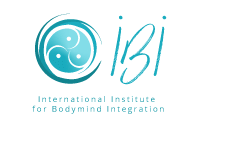«We turn skeletons into goddesses and look to them as if they might teach us how not to need.»
Marya Hornbacher, Wasted: A Memoir of Anorexia and Bulimia
What is eating disorder?
There is an eating disorder if there is disturbed eating behavior (too little, irregular, too much) and if the self-assessment is also excessively influenced by body shape and weight (concern). These models result from a combination of biological, psychological and social factors. An overview of these factors can help to better understand why.
This insight does not guarantee that actual eating behavior will also normalize and concern will diminish. Disturbed thinking and action around the body, weight and diet here and now is the most important starting point for treatment. In severe eating disorders, it will almost always be necessary to also work on the underlying conflicts and problems. The risk of relapse is high if there is not enough perspective to manage conflict and problems in a more constructive way than through eating disorder. Acquiring a realistic body image and accepting the body again are important conditions for recovery. The degree of disturbance to the bodily experience plays an important role in the development and maintenance of the eating disorder. These are the direct starting points for a body psychotherapy treatment.
Anorexia nervosa
With anorexia nervosa, you are very afraid of gaining weight or gaining weight while you are underweight. You may be obsessed with your appearance, weight and / or diet. Your appearance and your weight have a big influence on how you feel. Menstruation may be absent in women.
Bulimia nervosa
With bulimia nervosa, you have several attacks of bulimia per week. During a binge, you eat a lot of food in a relatively short period of time, often without being really hungry. At such a time, you feel like you have lost control of your behavior, you cannot just stop. From the fear of gaining weight, you compensate for binge eating. This may be due to vomiting, a decrease in your diet, laxation and / or excessive exercise. Your appearance and your weight have a big influence on how you feel.
Binge eating disorder
With Binge Eating Disorder, you have several binge attacks per week. During a binge, you eat a lot of food in a relatively short period of time, often without being really hungry. At such a time, you feel like you have lost control of your behavior, you cannot just stop. In addition to binge eating, there is no compensation. Binge eating or eating regularly (for a long time) often leads to severe overweight (obesity). Your appearance and your weight have a big influence on how you feel.
How to treat eating disorder in therapy?
A suitable intervention for eating disorders includes:
- Individual therapy: Individual work focuses on the development of specific management skills for eating disorders, while addressing the difficulties of daily stressors and the low self-esteem that often accompany a diagnosis of eating disorders.
- Relaxation, grounding and body awareness: Like individual therapy, relaxation, grounding and body awareness work with the teaching of specific body image management skills. The internal processes that contribute to complexes and the disturbed self-assessment are made aware and the client thus learns to better control these processes.
- Family therapy: Family work is important in the treatment of eating disorders as it focuses on the development of open communication and expression of emotions, while teaching parents / loved ones the techniques they can use at home with the client.
- Group therapy: Groups provide safe and appropriate social training where the client can receive feedback from peers and professionals on how to regulate their behavior. Based on clinical evidence, it is recommended that body oriented therapy modules be used to treat the disturbed bodily experience.
Did you like this article? Share it in:





